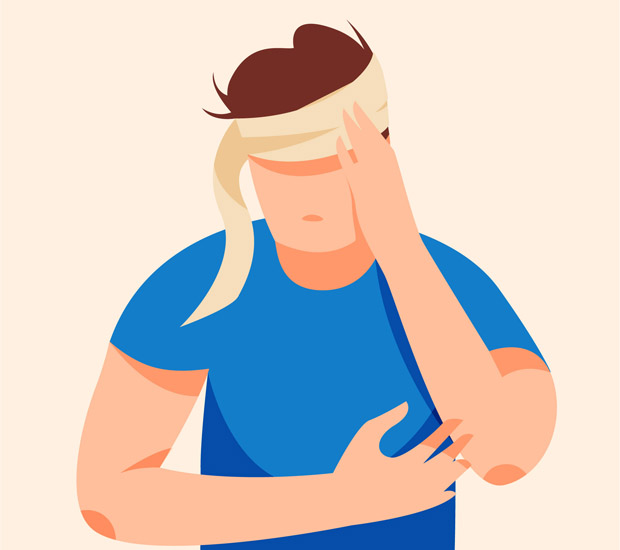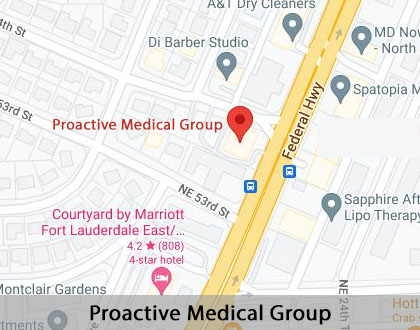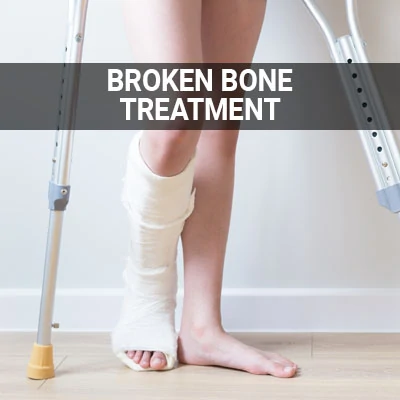Head Injuries and Concussion Treatment Fort Lauderdale, FL
A concussion is a severe brain injury that requires proper care to prevent further complications. If you have suffered a recent head injury, you should seek medical attention immediately. Concussion symptoms are not always easy to recognize, and only a professional should advise a person on how to proceed.
Treatment for head injuries and concussions is available at Proactive Medical Group in Fort Lauderdale and the surrounding area. If left untreated, head injuries and concussions can have severe and long-term health consequences. Call us today at (954) 938-2843 to schedule an appointment or to learn more about our services.
Understanding Concussions
A concussion is a traumatic brain injury in which a sudden collision causes the brain to shift rapidly, causing severe, temporary impairments to the individual who receives the blow. While a single concussion typically does not lead to long-term complications, multiple concussions are believed to affect one's long-term mental health. The impact that results in a concussion can lead to other serious complications, such as severe dizziness, nausea, and loss of consciousness. In some instances, it is obvious when an individual has sustained a concussion. However, milder ones are not as easy to distinguish.
Accidental collisions cause most concussions, meaning almost every individual participates in potential concussion-causing activities daily. Additionally, due to the rise in sports participation at a young age, concussions are becoming more prevalent in individuals under the age of 17. In adults who live a generally relaxed lifestyle, concussions occur much more rarely.
Although concussion symptoms typically go away with treatment after a few days, concussion symptoms can cause severe injuries that require immediate attention. If left untreated or recurrent, then there is a chance that they can result in more severe conditions and disabilities. Seeking medical attention is crucial to properly diagnose and treat a concussion, limiting the possibility of any long-term complications.
“Accidental collisions cause most concussions, meaning almost every individual participates in potential concussion-causing activities daily.”
Symptoms of Concussion
Concussions display a unique set of symptoms, ultimately making them challenging to diagnose by those who are not medical professionals. While it is common for athletes to take what is known as a baseline test to assess their mental capabilities following a head injury, non-sport injuries can be much harder to assess. Any head injury should be checked by a medical professional immediately. Common symptoms of concussion include:
- Amnesia about recent events
- Dizziness or confusion
- Loss of consciousness
- Mild to severe headache
- Nausea and vomiting
- Physical and mental fatigue
- Slurred speech
While the above symptoms tend to be the most prominent ones, any unusual behavior should be addressed with a primary care doctor. Additionally, not all concussion signs show themselves immediately. Be sure to look for concerning symptoms that may develop later, such as sensitivity to light, an inability to taste or smell, personality changes, and sleep disturbances. Children also tend to exhibit specific symptoms after a concussion that an adult might not, such as lack of interest in certain activities, tiring quickly, and a sudden change in eating or sleep patterns.
“What are the symptoms of a concussion”
What Physicians Can Do for Concussions
What Physicians Can Do for Concussions Given the severity of a traumatic brain injury — especially a concussion — it is essential to seek medical assistance after any collision involving the head. Just as not all head collisions result in a concussion, not all concussions result in noticeable short-term symptoms. It is crucial to be examined by a medical professional after a head injury, regardless of the presence of symptoms. Depending on the patient's budget or time of day during the accident, it may not always be practical to visit a specialist. In such cases, primary care is an excellent means of receiving the quality treatment one needs to prevent symptoms from worsening or turning into more serious, long-term complications.
A primary care doctor can diagnose a concussion by assessing the patient's mental state, examining how the injury occurred, and, in some cases, having the patient take an MRI. Once the physician makes an official diagnosis, they will create a customized treatment plan for the patient's unique needs. Proper rest, relaxation, and refraining from participating in any physical activity are typically the recommended course of treatment. As prevention is always the first line of defense, a physician can also suggest ways to avoid any concussions and head injuries in the future.
“Just as not all head collisions result in a concussion, not all concussions result in noticeable short-term symptoms.”
Check out what others are saying about our primary care physician services on Yelp: Head Injuries and Concussion Treatment in Fort Lauderdale, FL
When to Go to the Hospital for a Head Injury
While our primary care office can handle mild to moderate head injuries, more severe cases require more intensive services. These cases are typically associated with confusion or disorientation after the injury, deteriorating mental status, headache accompanied by nausea or vomiting, and loss of consciousness at the time of injury. It may take up to 24 hours after their injury for patients to feel these symptoms, and they may even feel relatively fine otherwise. These patients must still go to the emergency room immediately.
Other symptoms that a patient may require more serious medical care include difficulty with eye movements, difficulty waking up or arousing, discharge of clear fluid or blood from the ears or nose, numbness, seizure, unusual behavior or confusion, slurred speech, vomiting multiple times, and weakness. In general, progressive or worsening symptoms are also cause for concern. No matter the level of pain, we can assess the situation and determine the treatment the patient needs.
“No matter the level of pain, we can assess the situation and determine the treatment the patient needs.”
Questions Answered on This Page
Q. What are the symptoms of a concussion?
Q. Why should I go to a primary care doctor after a head injury?
Q. When should I go to the hospital for a head injury?
People Also Ask
Q. What types of treatment does a primary care doctor offer for injuries?
Q. How can a primary care physician treat an auto accident injury?
Frequently Asked Questions
Q. My child suffered a head injury, but it was not severe, and they seem okay. Does this mean they do not have a concussion?
A. Evaluating the symptoms of a concussion is not easy, and they often go entirely unnoticed. To make matters worse, it is often even more challenging to assess children's concussion symptoms than adults'. Subsequently, it is essential to always have your child evaluated by a medical professional after a head injury, even if they do not blatantly show signs of a concussion.
Q. I heard it was bad to go to sleep after a concussion. How long do I need to wait to fall asleep after a concussion?
A. One of the biggest myths surrounding concussions is that rest and sleep should be avoided at all costs. Many even offer the advice of waking up the individual with a concussion every hour. However, sleep is helpful when dealing with a concussion. With that said, it is encouraged to wait several hours and follow the official advice of a medical professional. A concussion often leads to severe fatigue, which can be problematic and needs to be addressed. If sudden, unexpected fatigue results after a head injury, we encourage you to come into our office for proper treatment.
Q. I suffered a head injury, but the effects seem minor. Which concussion symptoms require immediate medical attention?
A. A good rule to follow is to seek immediate care if there is any unusual behavior after a head injury, no matter how minor it may seem. The brain is in a very delicate state after a concussion, and it is crucial to receive proper, efficient care to prevent any severe complications. The most common symptoms after a concussion include dizziness, mental and physical fatigue, and blurred vision, although symptoms vary depending on the injury's scope.
Q. My physician told me to mentally rest while I recover. What exactly does the term "mental rest" mean?
A. If a healthcare professional encourages you to mentally rest, they are merely telling you to take it easy until you are in the clear. It is vital to rest mentally after any head injury, especially a concussion, as the most significant symptoms affect the mind and not the body. You may need to take several days off from work or school and avoid physical activity for a week or more. Be sure to give us a call if you have any questions about the recovery process following a concussion.
Q. Is it okay to take pain relief medicine after a concussion?
A. Taking medication after a concussion can be very tricky, as it tends to mask the symptoms that can give the examiner a better understanding of the severity of the injury. In general, it is best practice to avoid taking any pain relief medicine until after the concussion is officially diagnosed. After the diagnosis, pain relief medicine is typically acceptable, although it should not be used too frequently, as this can cause even more headaches.
Start Feeling Better – Visit Us Today
By visiting us as soon as possible, our team can help get you the professional treatment you need. Instead of waiting around and allowing the symptoms to get worse, we can provide you with treatment options.
Definition of Medical Terminology
- Cognitive exertion
- Also commonly referred to as mental exertion, this term describes mental focus. After a concussion, individuals typically have difficulty with cognitive exertion.
- Concussion
- A concussion is a state of temporary unconsciousness or confusion that often results from a sudden, impactful blow or violent shaking of the head. When this occurs, the brain rapidly shifts inside the head and can lead to severe complications that require medical attention to properly treat.
Call Us Today
Concussions and head injuries can lead to severe complications if left untreated. We at Proactive Medical Group can provide you with the immediate, quality care you need. Call us today at 954-938-2843 to schedule an appointment or to learn more about our services.
Helpful Related Links
- American Headache Society. American Headache Society. 2023
- American Journal of Medicine. American Journal of Medicine. 2023
- American Medical Association (AMA). American Medical Association (AMA). 2023
- American Migraine Foundation. American Migraine Foundation. 2023
- American Trauma Society. American Trauma Society. 2023
- The National Institute for Occupational Safety and Health (NIOSH). The National Institute for Occupational Safety and Health (NIOSH). 2023
- United States Department of Labor OSHA. United States Department of Labor OSHA. 2023
About our business and website security
- Proactive Medical Group was established in 2022.
- We accept the following payment methods: American Express, Cash, Check, Discover, MasterCard, and Visa
- We serve patients from the following counties: Broward County
- We serve patients from the following cities: Fort Lauderdale, Oakland Park, Wilton Manors, Pompano Beach, and Sea Ranch Lakes
- Norton Safe Web. View Details
- Trend Micro Site Safety Center. View Details
Back to top of Head Injuries and Concussion Treatment










